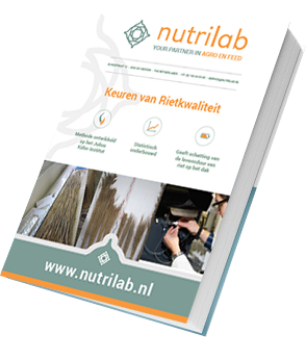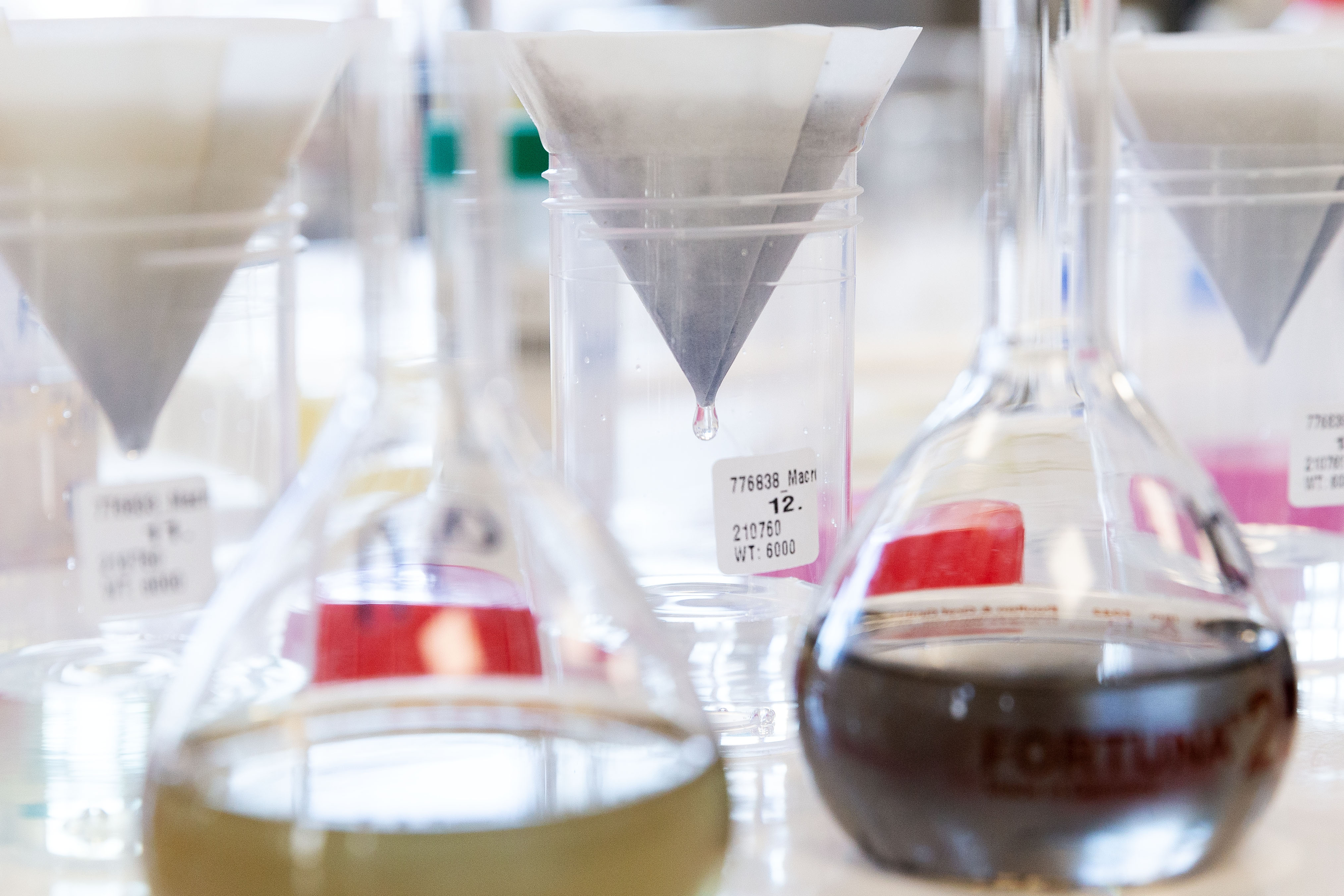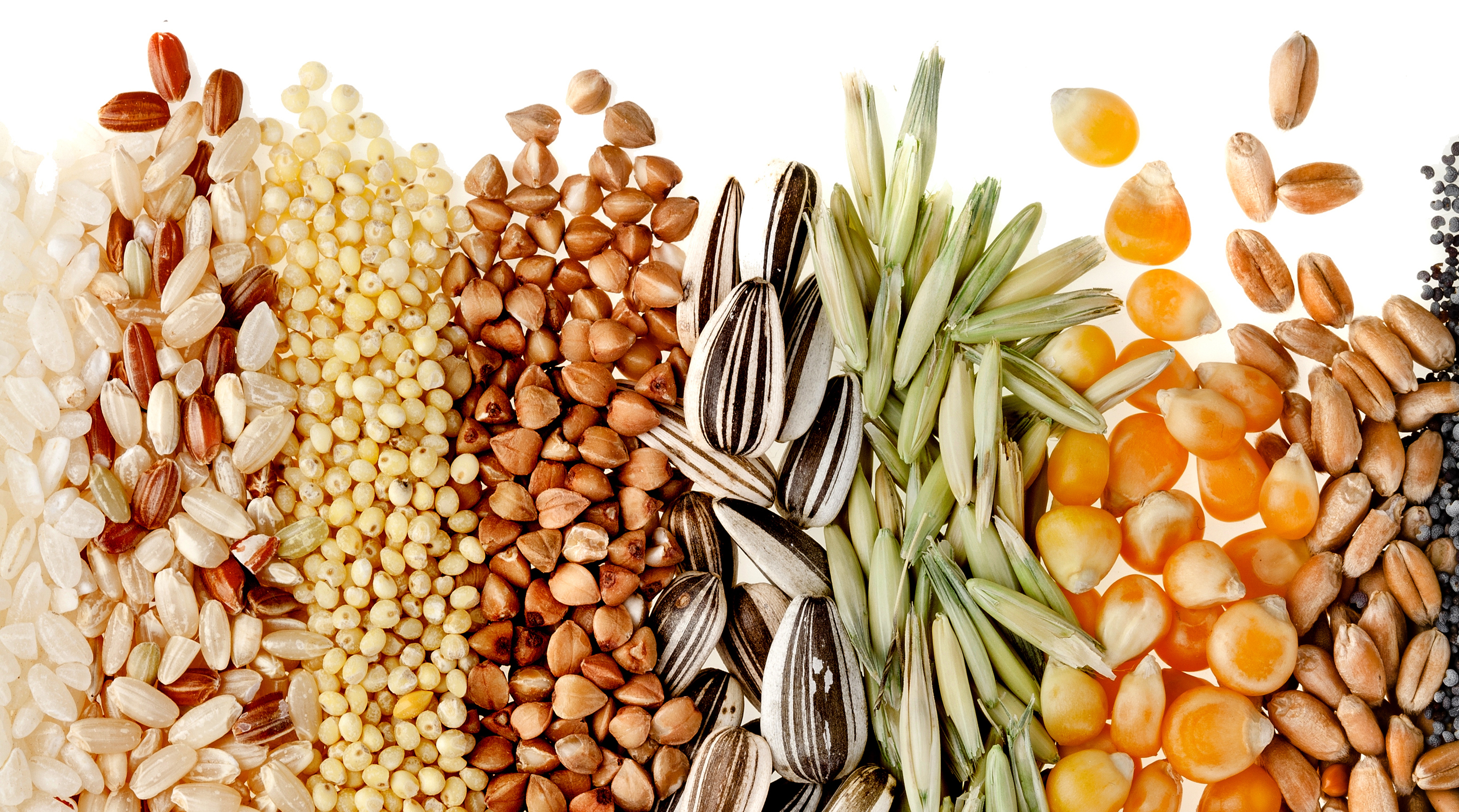
Would you like to be kept informed of developments?
In our free white paper, we share information about the new rules of legislation, innovations in analysis and we tell you about the digitisation of the market. Download our white paper for free!
 Analysis Selector
Analysis Selector
Nutrilab has its roots in the feed sector, through the inspection of raw materials, grains and animal feed. From this foundation, Nutrilab has developed into a partner for numerous businesses and organisations who are actively involved in the processing, production and inspection of feed products.
Reliable laboratory testing is essential for a trustworthy feed safety chain.
For businesses in the feed industry, regulations such as 2002/32/EG define the standards for quality control. GMP+ assesses compliance with these standards, among other things. It is therefore important to have testing carried out by a GMP+ certified laboratory. Nutrilab has a GMP+ B10 and B11 certification for laboratory testing. With over 65 years of experience in the feed industry, Nutrilab is a reliable partner for laboratory testing.
Having the right mix of raw materials is essential for producing a homogenous product. During the production process cross-contamination takes place. The process of dosage, mixing and transporting the mixture is generally the primary source of cross-contamination. The homogeneity and cross-contamination of a production line can be tested using microtracers. This is why it is important that sample collection takes place at critical points in the system. Nutrilab has extensive experience in setting up and executing tracer tests.
You can find more information about homogeneity and cross-contamination testing here.
EU regulation 2002/32/EG establishes the standards for undesirable substances in animal feed. A product must visibly meet required regulations to be marketed as a trusted product in the feed chain. A few examples of the contaminants outlined in the regulation include: heavy metals that are taken up by plants through polluted groundwater; pesticides, also known as herbicides or crop protection products, used during the cultivation of crops; mycotoxins such as aflatoxin B1, toxic waste products produced by moulds; and botanical contaminants such as poisonous seeds from weeds. The increase in green verges and the reduction in pesticide use has significantly increased the risk of undesirable weed seeds that inadvertently end up in farm animal feed.
Discover more about contaminants here.

Nutrilab offers a wide range of biological testing options under the ISO 17025 standard for foodstuffs, raw materials, mixed feed, roughage, straight feedstuffs, and air, as well as drinking and process water. Additionally, microbiological indicators are tested with regards to hygiene testing. It is also possible to collect independent samples of water or process water and carry out air quality measurements using air samplers.
For the management and dispersion of pathogens, the most common tests are for Enterobacteriaceae and Salmonella bacteria. Consumption of contaminated animal feed can lead to infections in animals.
The Weende analysis is a commonly used testing method in the animal feed and pet food industry. Knowing the nutritional value of animal feed is essential for both raw materials and final products. The Weende analysis is a collective name for several tests: moisture, crude fats, crude protein, ash and crude fibre. Animal feed must always be labelled with the crude fat, crude protein, ash and crude fibre content. The dry matter content of a feedstuff is of particular importance in farm animal feed. The dry matter contains the essential nutrients. A comparison of different feedstuffs is preferably carried out based on the dry matter content of a product.
Nutrilab has the facilities to carry out these tests according to traditional methods but also using NIR techniques. Nutrilab carries out Weende analyses in conformance with EU regulation 151/2009 and the GMP+ scheme.


We will be happy to visit you to discuss any quality questions or issues you may have.
Plan an advisory meeting
In our free white paper, we share information about the new rules of legislation, innovations in analysis and we tell you about the digitisation of the market. Download our white paper for free!


Powered by Wallbrink Crossmedia